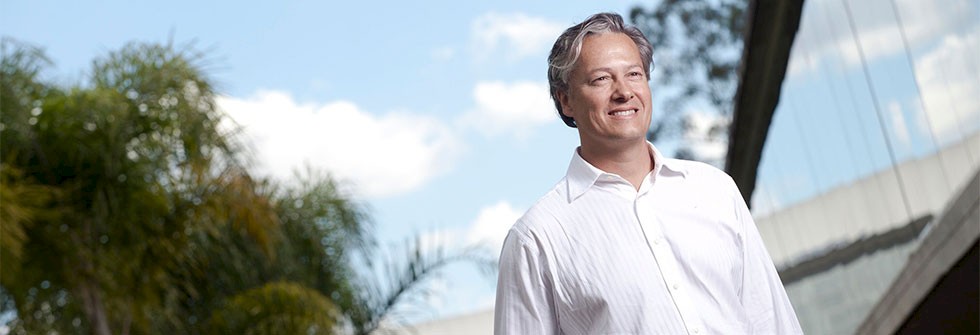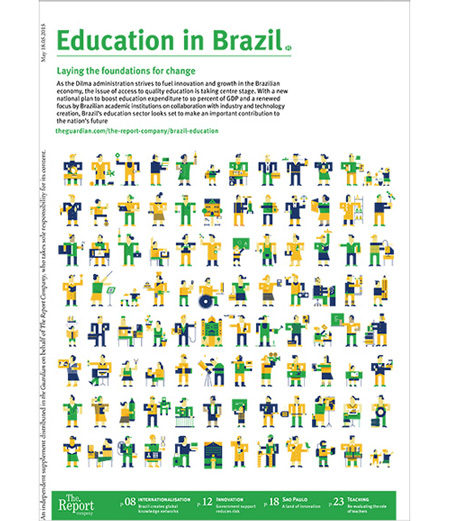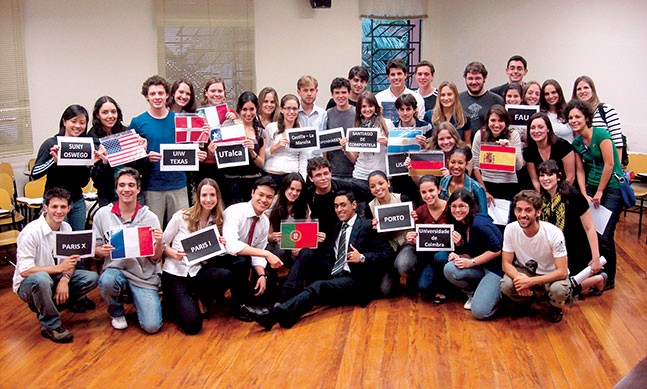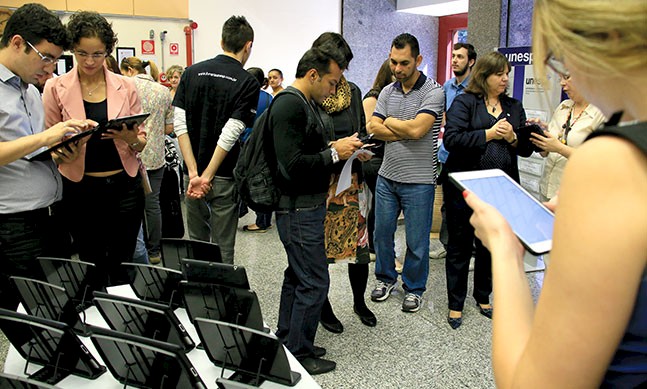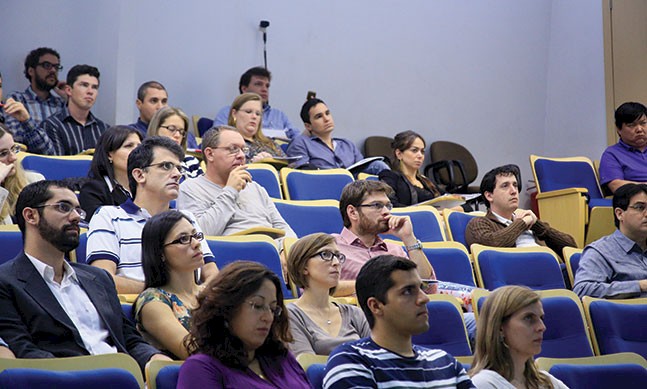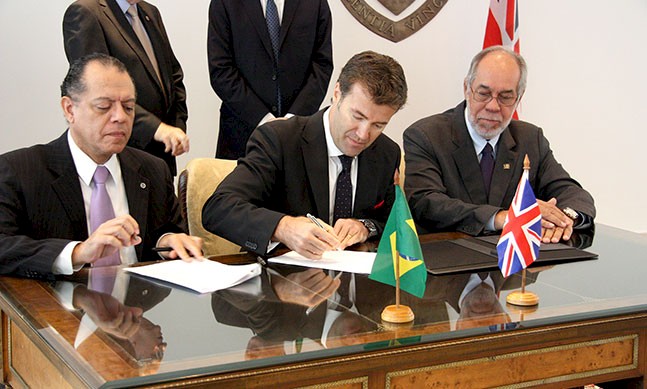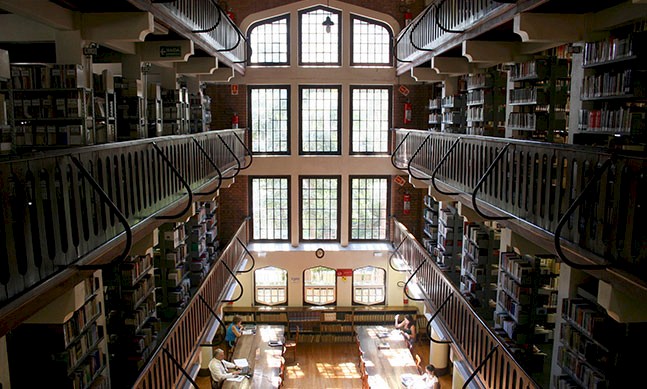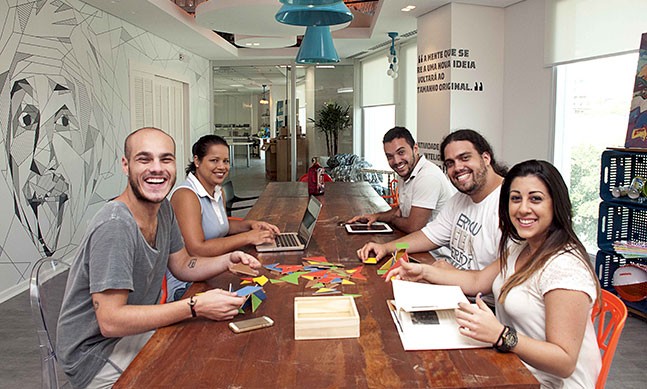Pedro Villares has worked for Brazilian cosmetic giant Natura for fifteen years. Having been instrumental in the company’s successful internationalisation, he moved on to become CEO of Instituto Natura, which provides crucial support to the country’s public education programmes at this critical stage in its development. Villares spoke to The Report Company about the efforts of Instituto Natura to play a fundamental role in the government’s strategy for growth and development without having to forsake the all-important quality of teaching.
The Report Company: What do you believe needs to be done to improve Brazil’s education system?
Pedro Villares: We are talking about a public education system with 44 million students, 2.1 million teachers and more than 200,000 schools. It’s gigantic. Basic education is the responsibility of municipalities, states take care of high schools and the federal government is responsible for higher education. This, in itself, already poses a challenge: coordination.
Every report on Brazilian education will tell you that around 97 percent of Brazilians of school age are enrolled in school today. The most important challenge now is improving quality. From the 65 countries evaluated by the OECD Programme for International Student Assessment (PISA) in 2012, we rank 55th for reading, 58th in maths and 59th in science. How do we improve that? The very fact that we are including a lot of students into the system in a very socially unequal country poses, by itself, an even greater challenge. Brazil has 5,700 municipalities, 80 percent of which have fewer than 50,000 people. This poses dramatic logistical issues. Municipal secretaries of education have to look after infrastructure, logistics, food and so on, so when you ask them about pedagogical issues, they usually say "I haven’t got onto that yet."
The challenge now is quality, and promoting quality while addressing inequality. The government has an agenda that addresses inequality, which is laudable. We believe that quality can be improved through the better integration and coordination of education systems. The backbone of this coordination would be the existence of a national curriculum, because currently there is no nationwide agreement on what students need to have learned at what ages in their school lives. Well-structured pedagogical material is also necessary, which could be anything from textbooks to classes with a logical sequence.
Teachers need some autonomy, but a balance is required. Only then can adequate evaluations be made. This is part of the PDCA cycle: ‘plan’ content for classes, ‘do’ more structured classes, ‘check’ and evaluate regularly and ‘act’ accordingly. To do this we also need well-trained and motivated teachers, and at the moment we have neither. Training needs to focus more on the practical aspects and hard work and good performance needs to be better rewarded.
“We talk a lot about educational systems and meritocracy, but there is a low-hanging fruit there that requires no investment, just a change in mindset.”Tweet This
TRC: How can such changes be implemented in practice?
PV: We always look at the three pillars: management, innovation and change. However, the world is changing and innovation is all around us. Children learn via YouTube now, and schools have to adapt. Moreover, we believe that schools can change societies, especially in poor, fragile social settings where bringing parents and the community into the school makes a lot of difference. We talk a lot about educational systems and meritocracy, but there is a low-hanging fruit there that requires no investment, just a change in mindset. Community learning is underway in many schools in Latin America, where local people work as volunteers in the classroom.
It will take a while until we have well-trained, motivated teachers, but new technology can offer learning management systems and personalised teaching platforms which check whether students have developed certain skills and suggest materials, with video classes. When we talk about the use of technology in schools, we end up speaking exclusively about information technology, but with that comes a great challenge with connectivity that we need to address. The technology is available, and the government needs an investment plan to create the incentives to make it possible, because right now the technology available in the classroom is ahead of the required connectivity.
Technology can make a difference in basic education as well. Colegio Fontan, which now partners with the Gates Foundation and Microsoft, has a learning management system in which students learn outside of classes. It is unbelievable. We are doing a similar project in Rio, Projeto GENTE. This is an experimental school of new educational technologies, and is an initiative of the city of Rio de Janeiro in partnership with Instituto Natura and Fundacao Telefonica. It uses a structured curriculum that students work through on their own. There are no obvious answers, but I have visited Colegio Fontan and seen it working in practice.
TRC: What role is there for the private sector in improving education in Brazil?
PV: The private sector has the role of promoting agility. The government has to be cost efficient and invite bids from various companies, but with innovation you cannot always do that because it may be that you’re experimenting with one specific thing in one specific place. You just have to do it, regardless of cost efficiency. The government cannot be seen to fail, either, so private institutions should take that role of capital expenditure on new things, new technologies.
The private sector is also good at bringing together different actors and Instituto Natura plays that role really well. We bring together secretariats of education, software companies, education institutes and so on.
“Without addressing education, nothing is addressable. It is a very simple answer: education is step number one.”Tweet This
TRC: Why did Instituto Natura choose to work with education and not sustainability?
PV: Every time we think of sustainability, we think of the environment, but it is much more than that; there is a whole social aspect to it. Currently, our take on sustainability encompasses more than just the environment and with that expanded vision in mind - which includes social aspects - we could not think of anything that has a greater impact than education. Without addressing education, nothing is addressable. It is a very simple answer: education is step number one.
TRC: Where does Natura see Brazil in 10-15 years’ time and what should be the country’s goal with the education reform underway?
PV: Natura has been striving for a new economy based on sustainable development. Natura has set firm goals and commitments for its business activities to achieve by 2020, with the ambition of generating positive impact for the future. This means that we want to promote social, environmental, economic and cultural wellbeing, whilst going above and beyond to reduce and neutralise the negative impacts generated by our activities.
Among the principles that guided the development of this new operating model are creating social impact through encouraging education and the promotion of new sustainable business models.
We believe that only education can open horizons, expand awareness and generate opportunities. Instituto Natura’s role follows this principle, forming part of a large network of public sector entities, other institutes and foundations and the learning community, in order to ensure lifelong learning, to support excellence in the management of public education and to encourage innovation in educational technologies. An education for a new age.
“We believe that only education can open horizons, expand awareness and generate opportunities.”Tweet This


